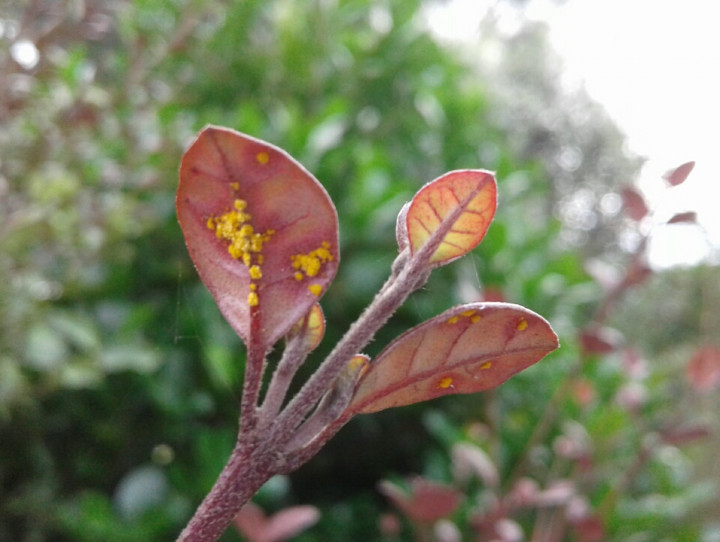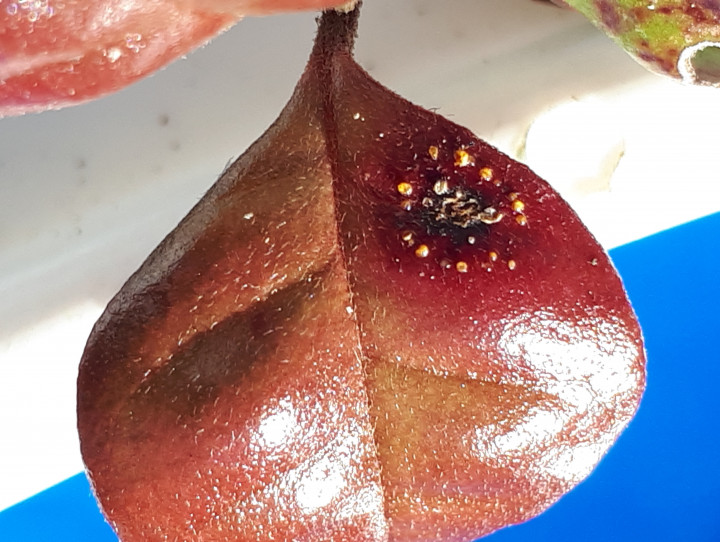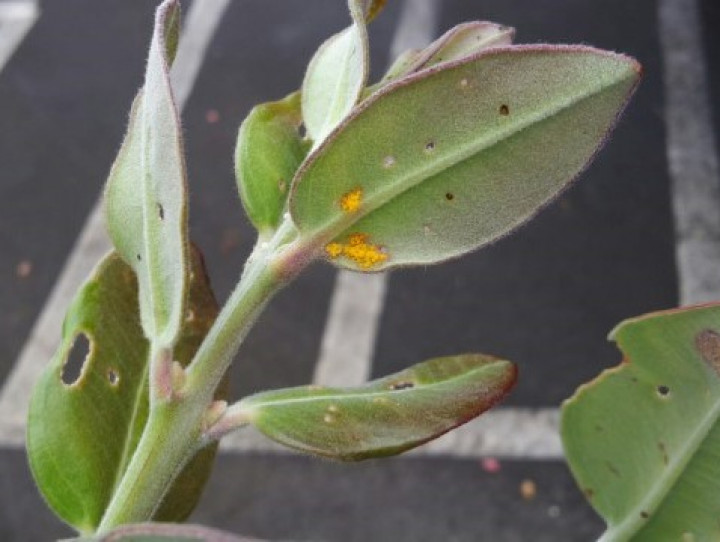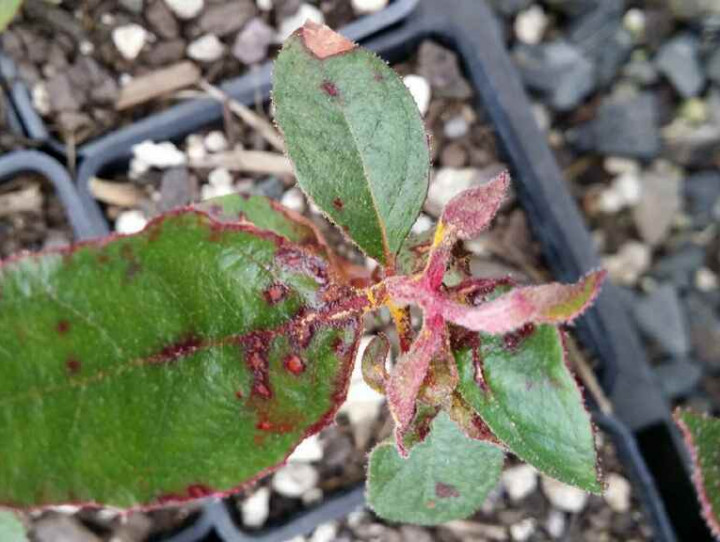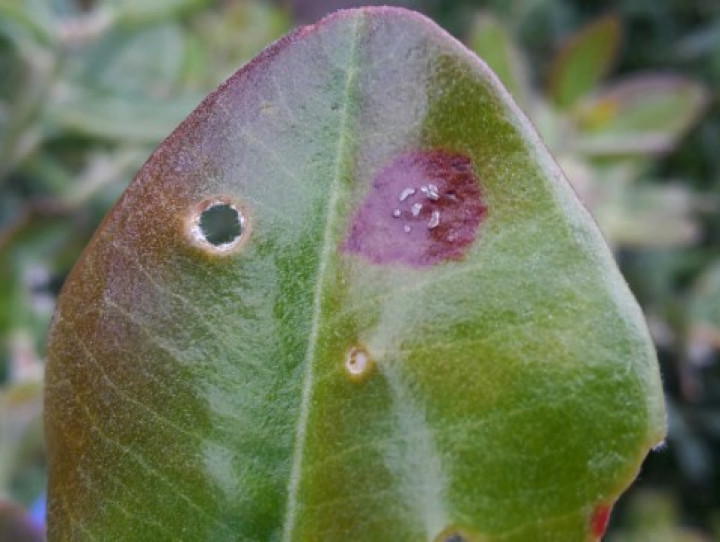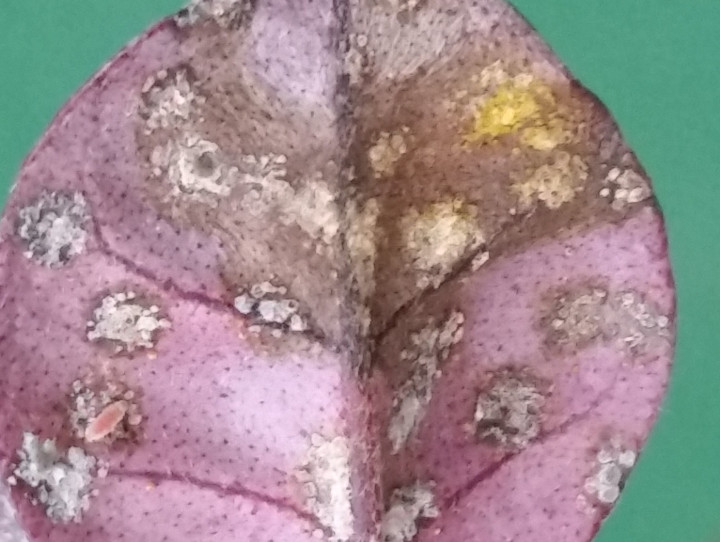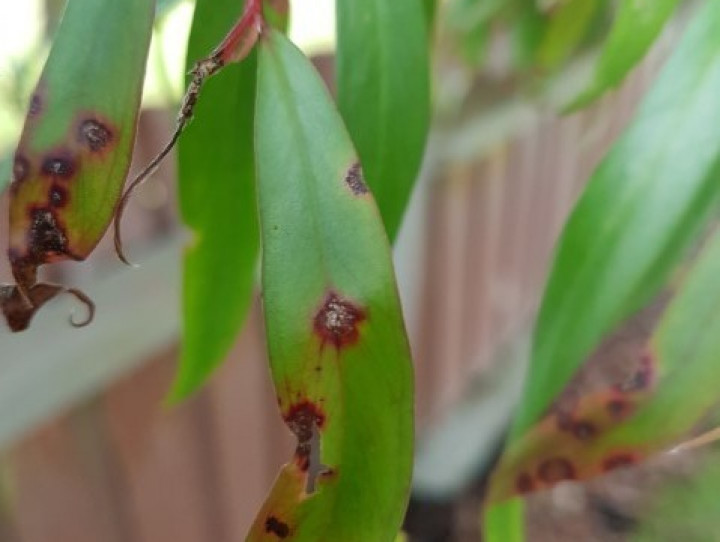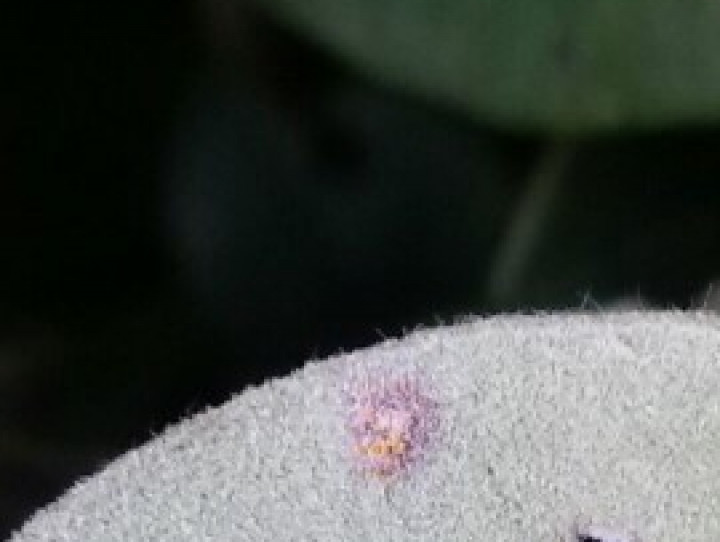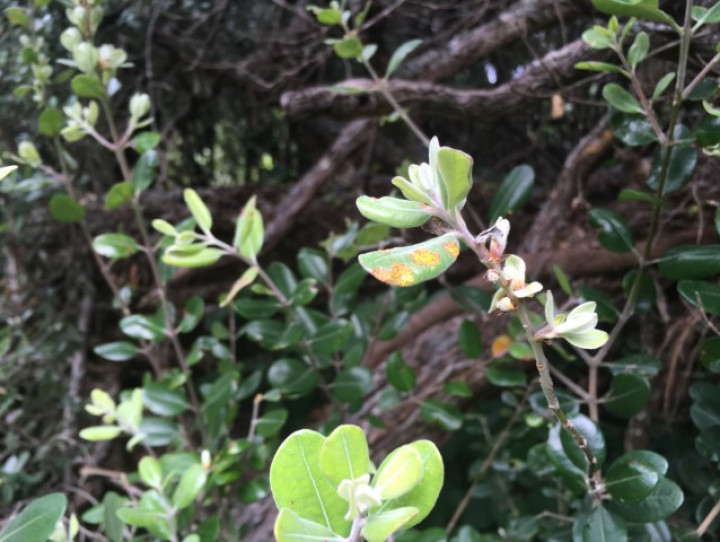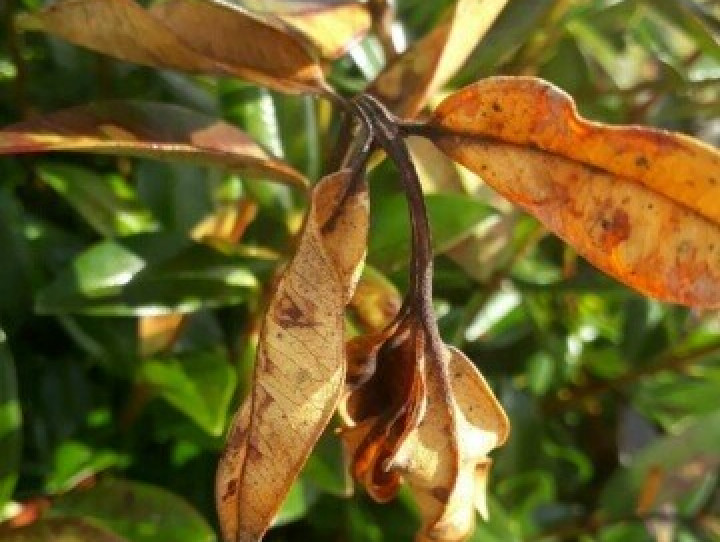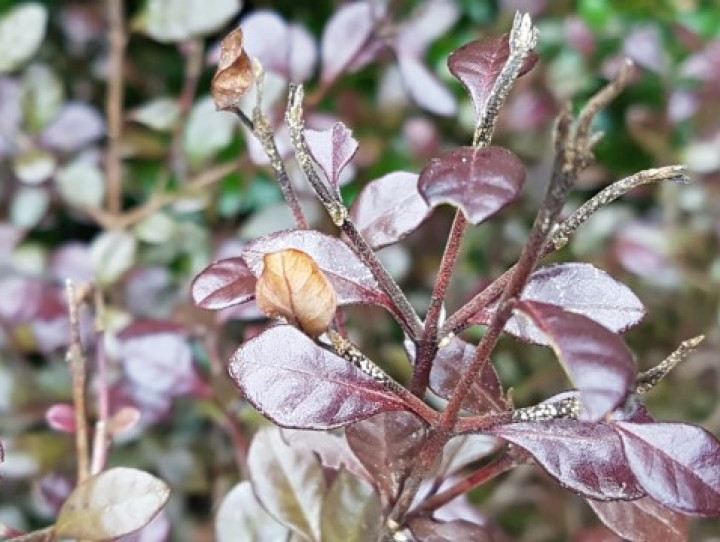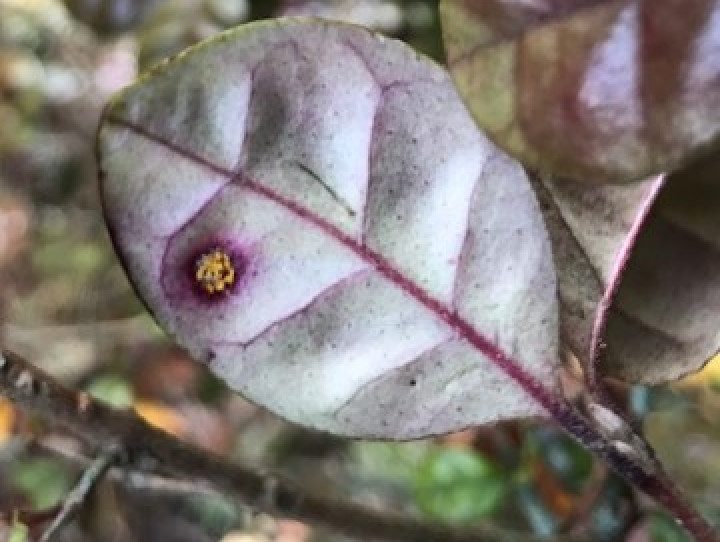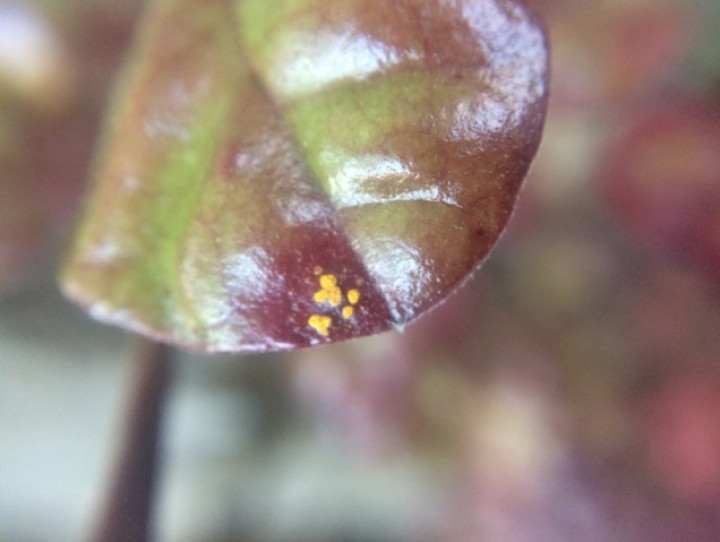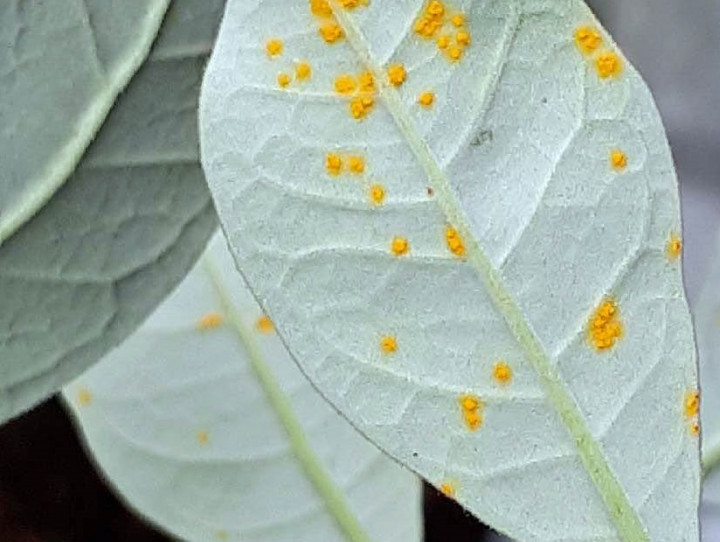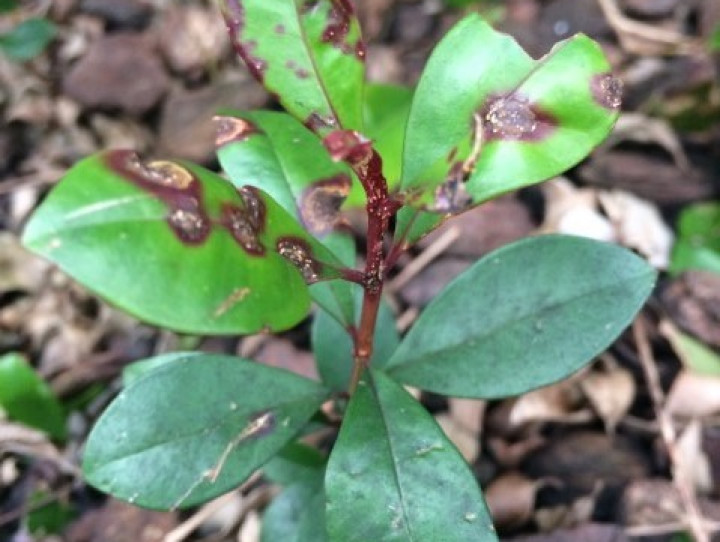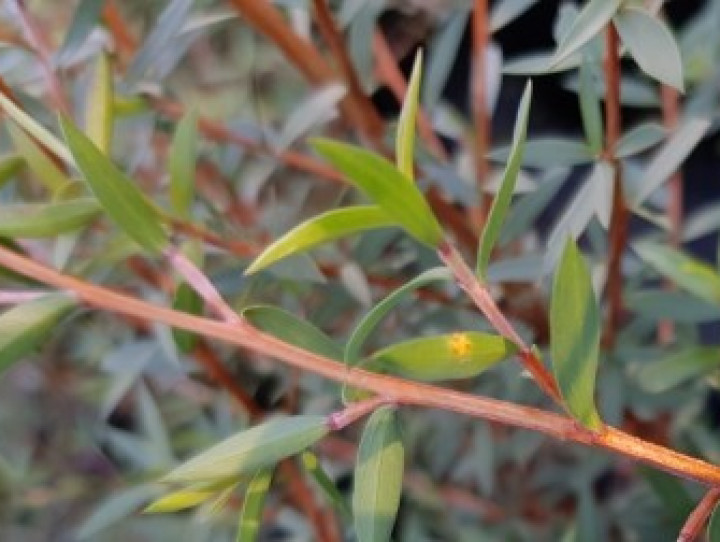How to recognise myrtle rust
Keep an eye out for myrtle rust in your garden, local parks, and other green areas. Recognise symptoms so you can help protect our environment.
Plants to check for myrtle rust
Myrtle rust is a serious fungal disease that affects plants in the myrtle family. Some of our most iconic native plants are vulnerable to myrtle rust, including:
- pōhutukawa
- mānuka
- rātā
- swamp maire
- ramarama.
Some exotic species can also get the disease, including ornamental plants like bottlebrush and lilly pily.
List of species found with myrtle rust in NZ
Symptoms to look for
Look out for symptoms of myrtle rust, including:
- bright yellow powdery eruptions appearing on the underside of the leaf (young infection)
- bright yellow powdery eruptions on both sides of the leaf (mature infection)
- grey, 'fuzzy' spore growth on undersides of leaves
- some leaves may become buckled or twisted and die off.
Use the images below to help identify myrtle rust
Ramarama with myrtle rust
Ramarama with raised yellow pustules on the underside of the leaf indicating myrtle rust. Ramarama is an endemic species of evergreen myrtle shrub which grows to a height of 8m.
Ramarama with myrtle rust
Ramarama leaf with raised yellow pustules indicating myrtle rust. Ramarama is an endemic species of evergreen myrtle shrub which grows to a height of 8m.
Rātā with myrtle rust
Rātā with raised yellow pustules indicating myrtle rust. Rātā trees, along with the pōhutukawa, are one of the best known native trees in New Zealand. Native birds benefit from rātā, but as possum numbers increase the threat to native birds and to rātā has also grown.
Eucalyptus with myrtle rust
Yellow pustules on seedling stem and red lesions on leaves of a young Eucalyptus plant indicating myrtle rust. Eucalyptus is a diverse genus of flowering trees and shrubs in the myrtle family, Myrtaceae.
Rātā with myrtle rust
Rātā leaf with brown-red lesions indicating myrtle rust. Rātā trees, along with the pōhutukawa, are one of the best known native trees in New Zealand. Native birds benefit from rātā, but as possum numbers increase the threat to native birds and to rātā has also grown.
Ramarama with myrtle rust
Ramarama with grey-brown older spores indicating myrtle rust. Ramarama is an endemic species of evergreen myrtle shrub which grows to a height of 8m.
Ramarama with myrtle rust
Ramarama with raised yellow pustules indicating myrtle rust. Ramarama is an endemic species of evergreen myrtle shrub which grows to a height of 8m.
Willow myrtle with myrtle rust
Willow myrtle with red-brown lesions indicating myrtle rust. Agonis flexuosa is a species of tree in the myrtle family. It has clusters of small white flowers that grow on the branches in between the leaves in spring and summer.
Pōhutukawa with myrtle rust
Pōhutukawa with grey spores more common in winter. Pōhutukawa is New Zealand's Christmas tree, and holds a prominent place in Maori mythology. Although the fortunes of pōhutukawa and rata have changed for the better, they are still threatened by people and pests. Photo credit DOC.
Pōhutukawa with myrtle rust
Pōhutukawa with myrtle rust yellow pustules. Pōhutukawa is New Zealand's Christmas tree, and holds a prominent place in Maori mythology. Although the fortunes of pōhutukawa and rata have changed for the better, they are still threatened by people and pests. Photo credit DOC.
Rātā with myrtle rust
Rātā where leaves have become buckled and are dying off due to myrtle rust. Rātā trees, along with the pōhutukawa, are one of the best known native trees in New Zealand. Native birds benefit from rātā, but as possum numbers increase the threat to native birds and to rātā has also grown.
Ramarama with myrtle rust
Ramarama with older grey-white pustules on stem and leaves indicating myrtle rust. Ramarama is an endemic species of evergreen myrtle shrub which grows to a height of 8m.
Ramarama with myrtle rust
Ramarama with raised yellow pustules on lower surface of leaf indicating myrtle rust. Ramarama is an endemic species of evergreen myrtle shrub which grows to a height of 8m.
Ramarama with myrtle rust
Ramarama with raised yellow pustules on upper surface of leaf indicating myrtle rust. Ramarama is an endemic species of evergreen myrtle shrub which grows to a height of 8m.
Feijoa with myrtle rust
Feijoa with raised yellow pustules indicating myrtle rust. Acca sellowiana, a species of flowering plant in the myrtle family, Myrtaceae, is native to the highlands of southern Brazil, eastern Paraguay, Uruguay, northern Argentina, and Colombia. It is widely cultivated as an ornamental tree and for its fruit.
Lilly pilly/Monkey apple with myrtle rust
Lilly Pilly with raised yellow pustules and red-brown lesions indicating myrtle rust. Syzygium smithii is a summer-flowering, winter-fruiting evergreen tree, belonging to the myrtle family Myrtaceae. It shares the common name "lilly pilly" with several other plants. In New Zealand, it is commonly known as 'monkey apple'
Mānuka with myrtle rust
Mānuka with yellow and grey pustules on leaves with small red-brown lesions indicating myrtle rust. Leptospermum scoparium, commonly called mānuka, manuka, manuka myrtle, New Zealand teatree, broom tea-tree, or just tea tree, is a species of flowering plant in the myrtle family Myrtaceae, native to Australia and New Zealand.
